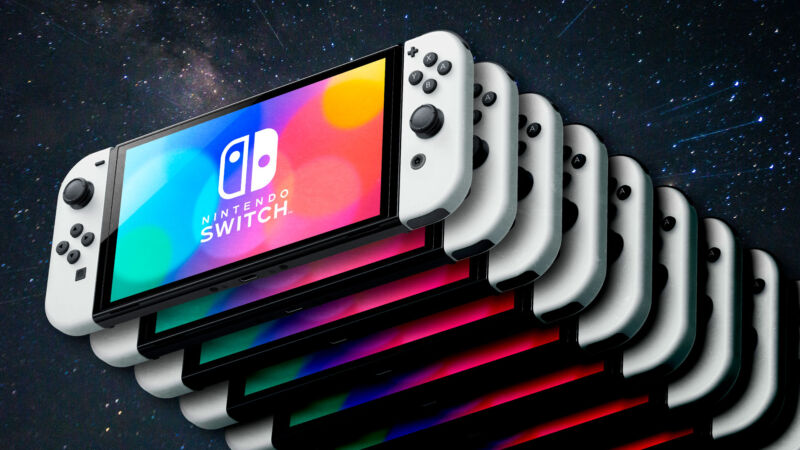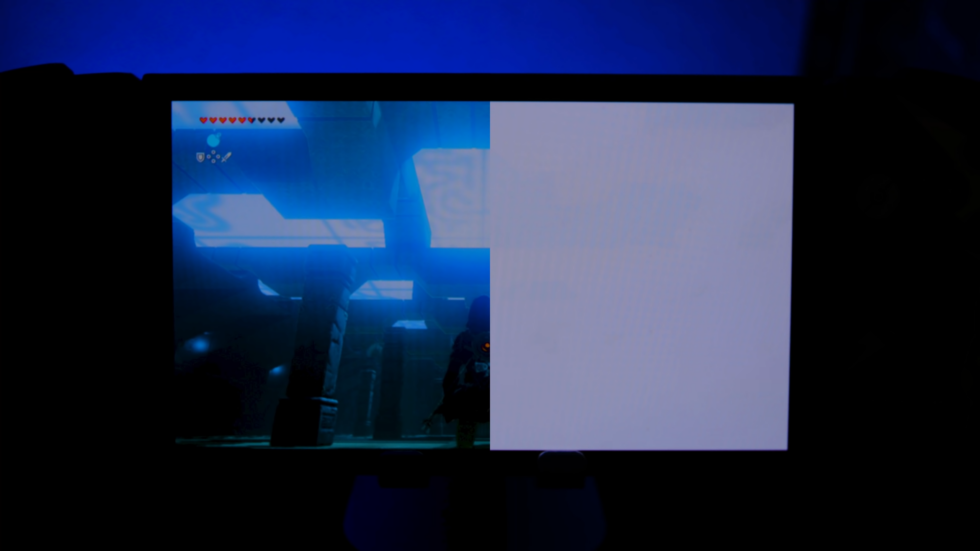
Enlarge / Go on, leave your Switch OLED on nonstop for 3,000 hours and more. It may not be the best idea, but at least one tester in the wild has found it takes that many hours before the screen is negatively impacted. (credit: Aurich Lawson)
For many Nintendo fans, the launch of the Switch OLED in late 2021 was a welcome upgrade that provided a bigger screen and richer colors. But some people were concerned with the company putting an OLED panel on a portable system due to fears of image retention or outright image burn-in.
Thankfully, my prerelease testing of Switch OLED, which included hours-long tests of static Zelda images, didn't permanently burn any Zelda heart icons onto the screen, and anecdotal testing in the months since has looked positive. But what if that isn't comforting enough? What if you need an extreme test to know exactly how well the Samsung-manufactured panels in the Switch OLED consoles resist all forms of burn-in and image retention?
Seen by the eyes of a Wulff
-

Wulff's test, split halfway between a frozen image and what impact it has on an all-white screen. [credit: Bob Wulff ]
On the system's launch day, YouTube tech critic and Twitch host Bob "WulffDen" Wulff began an experiment to conclusively answer this question, and five months later, he has published the latest video in his series on the topic. The console he tested, as put through an extreme test case that average gamers would never approach, needed 3,600 hours of nearly nonstop projection of a single image to show any signs of OLED burn-in.
Read 7 remaining paragraphs | Comments
